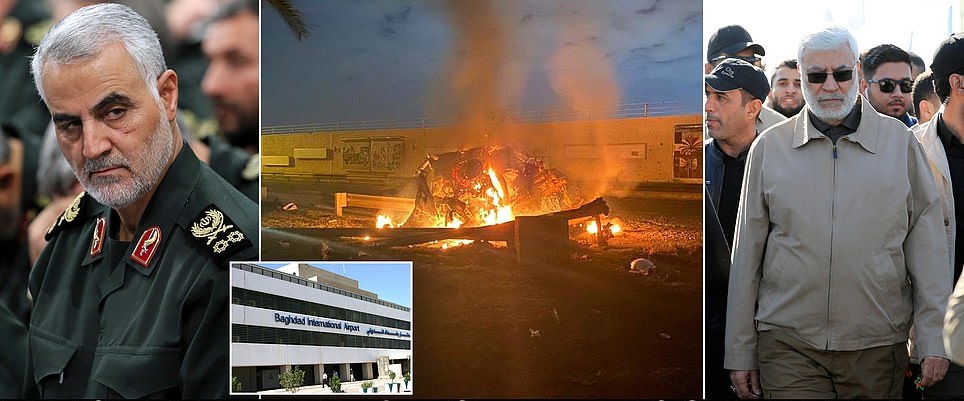Secretary of Defense Mark Esper said today that he “didn’t see” specific evidence that Iranian military commander Qassem Soleimani was planning attacks on U.S. embassies in the Middle East, but he believed “probably” that was Soleimani’s plan.
Esper’s remarks, during an interview with CBS News’ Face the Nation, came after President Trump told Fox News host Laura Ingraham on Friday that he could “reveal” that he believed “it probably would’ve been four embassies” that were attacked through Soleimani’s planning.
The defense secretary did not directly corroborate Trump’s remarks, noting that he had not seen evidence confirming the Trump’s assertion.
“He [Trump] didn’t cite a specific piece of evidence,” Esper argued. “What he said, he probably, he believed–” the defense secretary said, before being interrupted by Face the Nation host Margaret Brennan
“Are you saying there wasn’t one [specific piece of evidence]?” Brennan asked.
“I didn’t see one with regard to four embassies. What I’m saying is I share the president’s view that probably, my expectation was they were going to go after our embassies,” he responded.
Relatedly, in an interview with Fox News Sunday, Trump’s national security adviser Robert O’Brien declined to say that he knew of specific evidence that Iran was planning attacks against U.S. embassies.
“We knew there were threats to American facilities,” O’Brien insisted. “Now whether they were bases, embassies, you know, it’s always hard [to know] until the attack happens.”
Trump has faced substantial criticism from Democratic lawmakers, as well as some prominent Republicans, for his decision to order a drone strike that killed Soleimani, who led Iran’s elite Quds Force, on January 3 after he arrived in Iraq.
Critics have questioned the legal justification for taking out an official of a sovereign government and warned that the president’s actions could have led the U.S. closer to war with the Islamic Republic.
While Trump and his administration have repeatedly insisted that the threat of an attack on American interests in the Middle East was “imminent,” they have shared what many view to be conflicting statements publicly.
Additionally, Democratic and Republican lawmakers have said that the evidence presented in a briefing to Congress did not provide any clearer details about the intelligence that was used to justify the strike, while The New York Times also cited anonymous government officials saying that the evidence used was “razor thin.”
Secretary of State Mike Pompeo has drawn substantial criticism for asserting that the threat was “imminent,” an assessment that could be used to justify the strike as defensive. However, in the same remarks he asserted that the administration did not know “where” or “when” exactly the attacks would occur.
“Pompeo: The attack was imminent, but ‘we didn’t know when and we didn’t know where.’ Well, if you don’t know when and if you don’t know where, that is not ‘imminent,'” Congresswoman and Democratic presidential candidate Tulsi Gabbard, a veteran of the Iraq War, tweeted on Sunday, criticizing the secretary of state’s remarks.
Republican Senator Mike Lee of Utah strongly criticized the administration following a classified briefing to Congress about the Soleimani strike last week. He argued that the administration had not provided any significant evidence that the threat was imminent.
“When we would ask them, ‘What was the nature of that attack? When and where would that have been occurred? By whom would it have been carried out?’, they refused to answer the question. And they deferred the same way they would if we weren’t in a classified environment, saying, ‘We can’t talk about that,'” Lee said.
